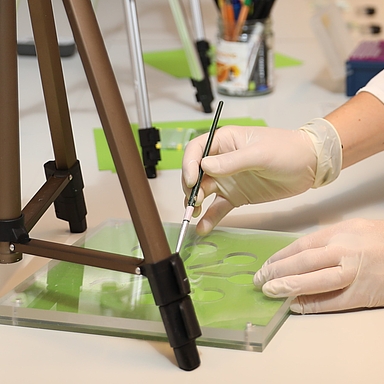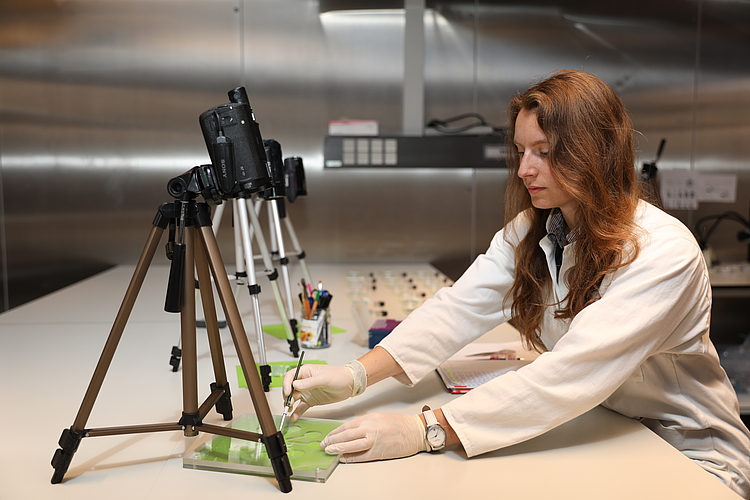Project A.02

- PhD student: Marina Psalti
- Supervisor: Romain Libbrecht
- Further TAC-members: Carlotta Martelli, Joseph Colgan, Susanne Foitzik
- Research Group
Animal behavior has genetic components. This is true in societies such as ours, but also in the highly complex and very diverse insect societies. How genetics affect behavior in social insects is the focus of my PhD project. Using transcriptomic data from ants expressing different behaviors like brood care, foraging and aggression, I aim to provide a better understanding of the genetic mechanisms of division of labor in complex, self-organized insect societies.
My research project focuses on the consistency and proximate mechanisms of genetic effects on behavior in the Argentine ant Linepithema humile. We pose the question if the genetically influenced behaviors are maintained over time and across social contexts. Additionally, we are interested in the responsible genes expressed for division of labor behaviors.
The Argentine ant can be found as an invasive species on five continents, amongst them in many European countries. L. humile has the rare and useful feature of having males and new queens mating inside the nest. This gives us the opportunity to selectively cross and breed these ants under laboratory conditions to investigate the relative influences of the paternal and maternal genetic backgrounds on behavior. We will use the Argentine ant as a model system, and combine behavioral experiments, controlled crosses in the laboratory, and brain transcriptomics to investigate how the parental genetic backgrounds affect worker behavior and division of labor in insect societies.
